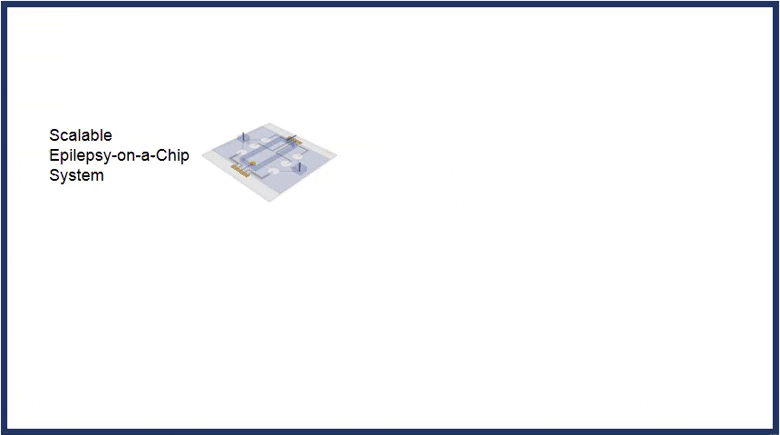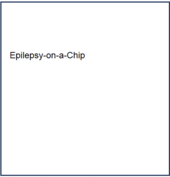
Development of antiepileptic drugs is currently complicated by the long time course of epileptogenesis. This process occurs on a time scale of weeks to months in animal models, and takes up to two weeks in an in vitro organotypic hippocampal culture model. Variability in the timing of seizure occurrence necessitates the use of continuous electrical recordings and limits experimental throughput. Here, we describe a hybrid microfluidic-microelectrode array (µflow-MEA) technology that improves the throughput of chronic recordings in hippocampal slices and facilitates antiepileptic drug discovery. This technology incorporates microfluidic perfusion network and planar microelectrodes into a miniaturized device for scalable electrical assays of epileptogenesis in hippocampal slice cultures. The custom MEA was optimized to detect seizure-like population activity. The µflow-MEA chip was found to support neuronal survival in 6 slice cultures per device for at least 2 weeks, and all cultures developed spontaneous seizure-like activity. To demonstrate the application of our technology in antiepileptic drug discovery, we utilized µflow-MEA chips in a two-stage screen of inhibitors of Receptor Tyrosine Kinases (RTKs). In Stage I, lactate and lactate dehydrogenase biomarker assays were performed to identify potential drug candidates. In Stage II, candidate compounds were retested with µflow-MEA-based chronic electrical assay to provide electrophysiological confirmation of biomarker results. We screened 12 RTK inhibitors and discovered novel antiepileptic properties of EGFR/ErbB-2 inhibitor and cFMS inhibitor in both biomarker and µflow-MEA-based electrical assay. The staged screening platform provides the means for rapid dissection of complex signaling pathways in epileptogenesis, paving the way for high-throughput antiepileptic drug discovery.

